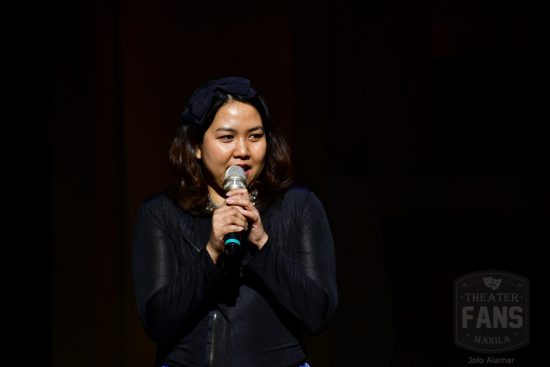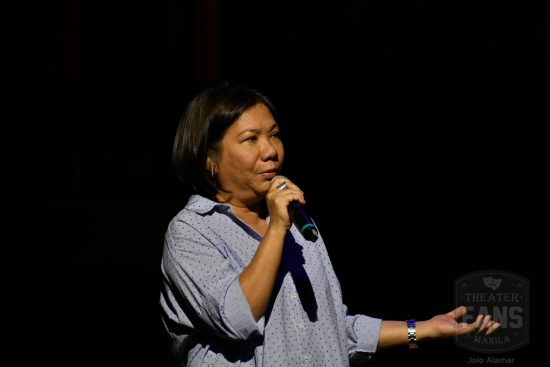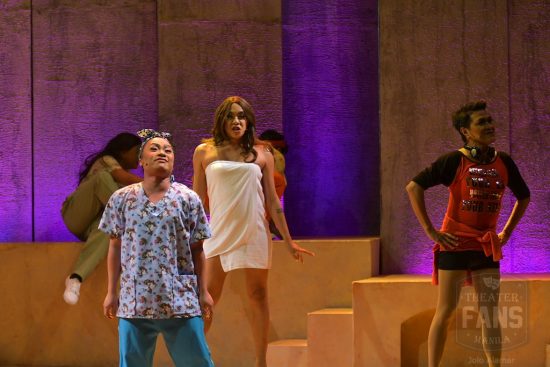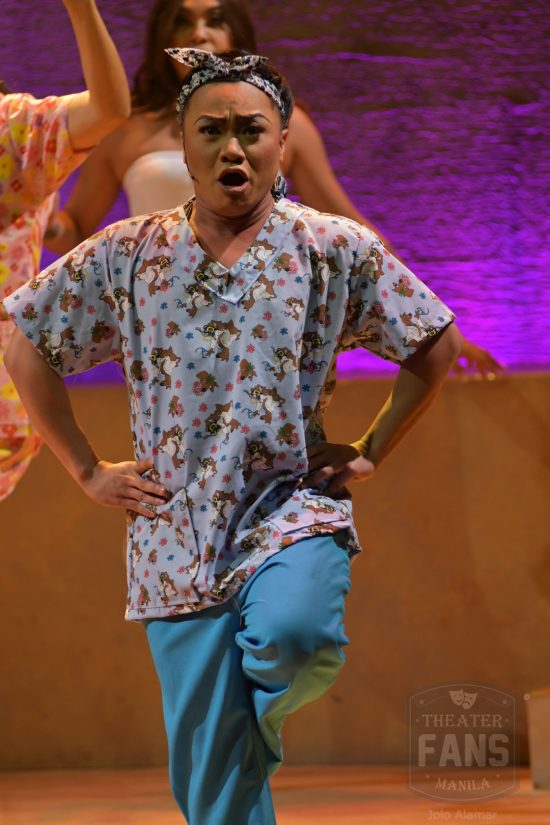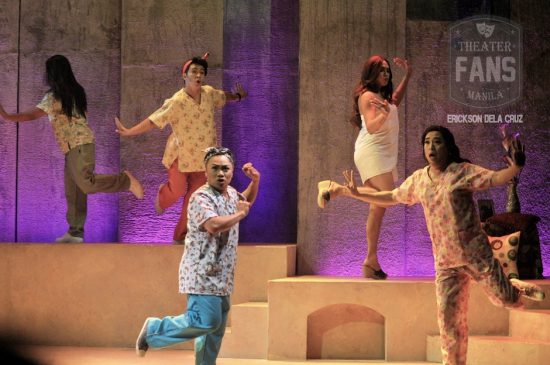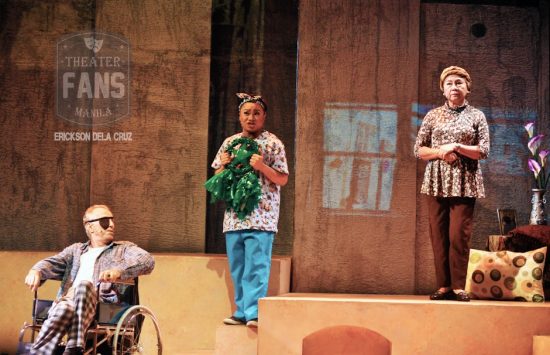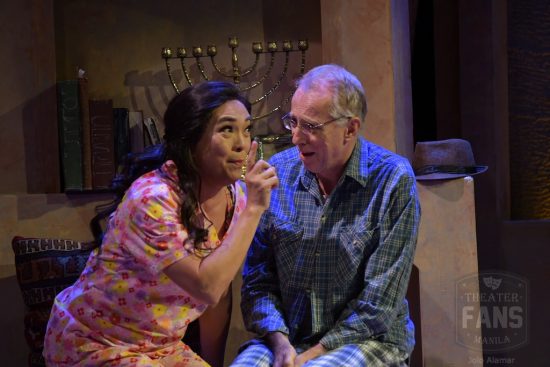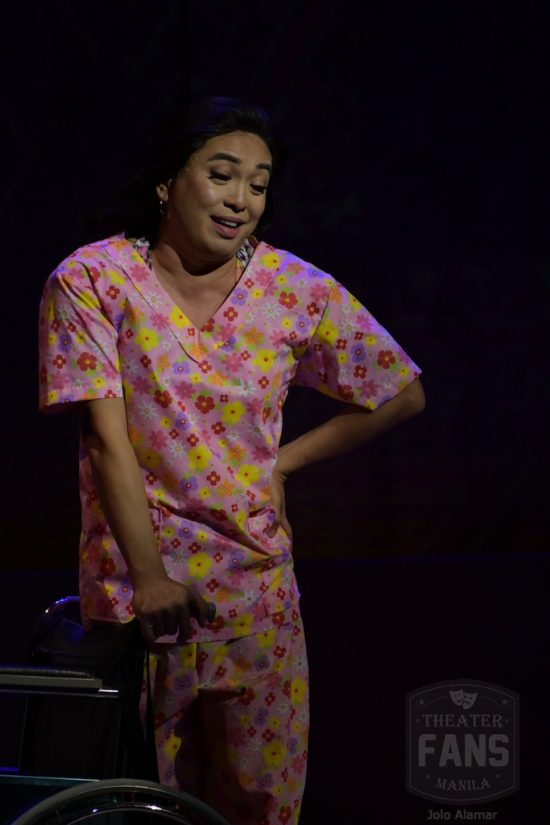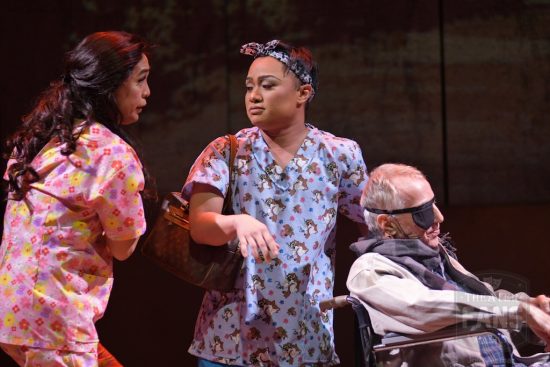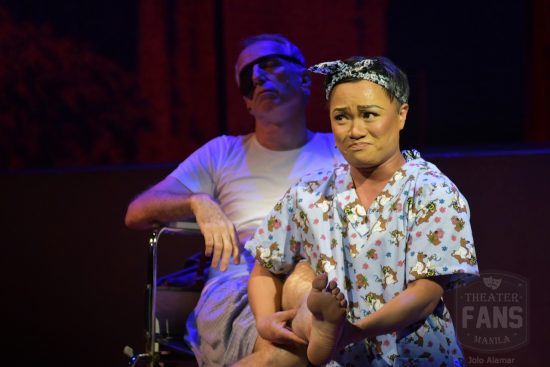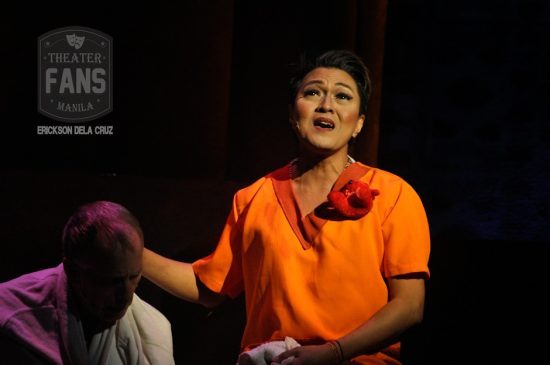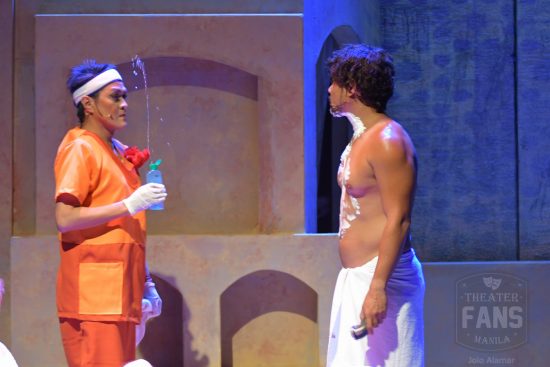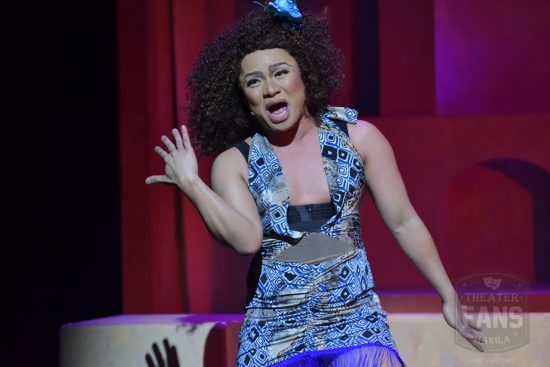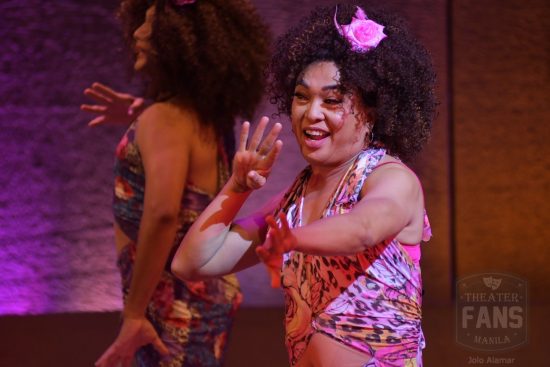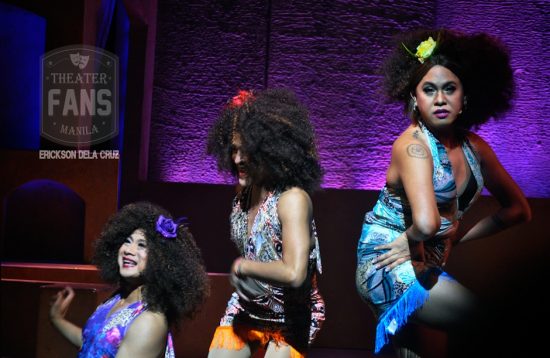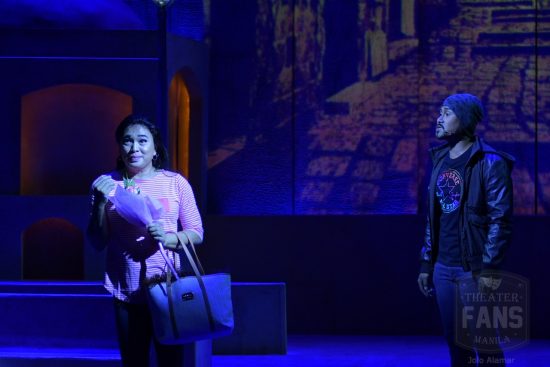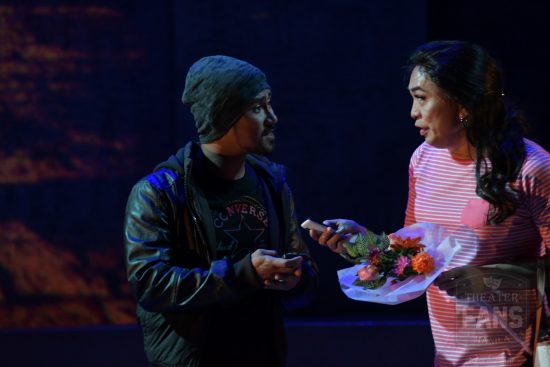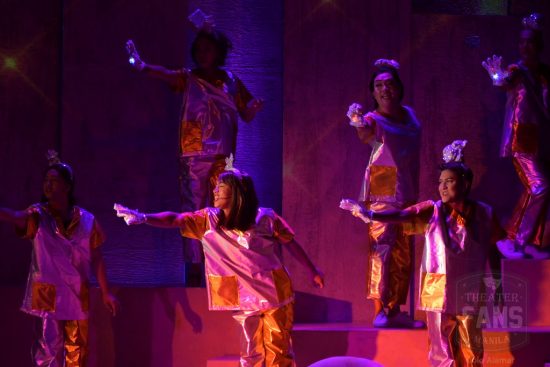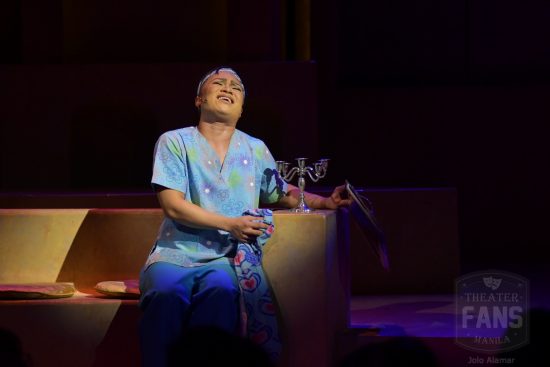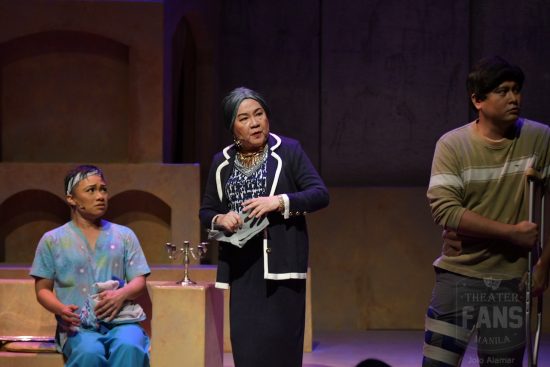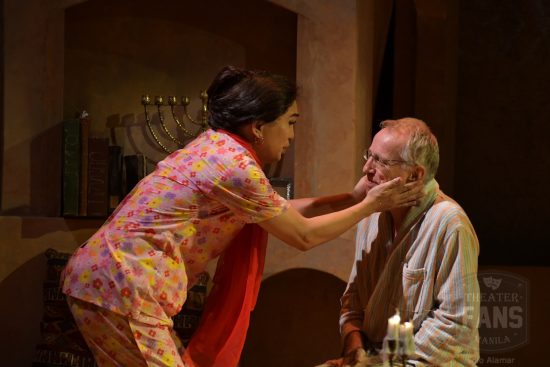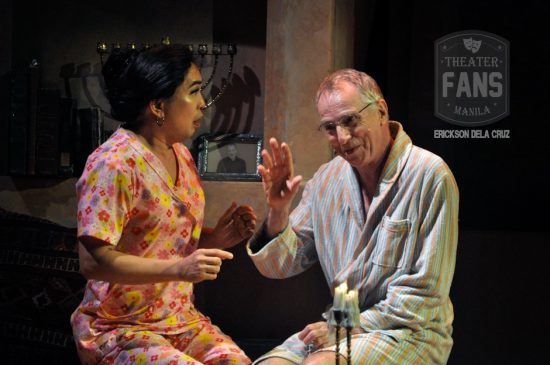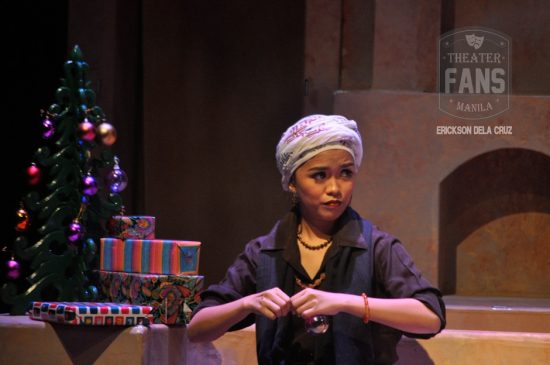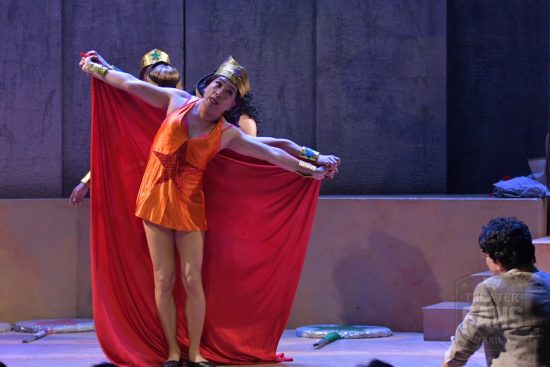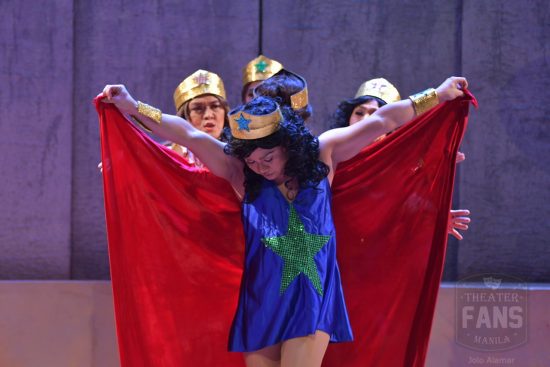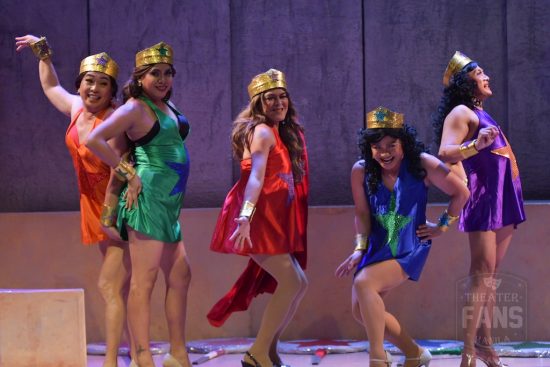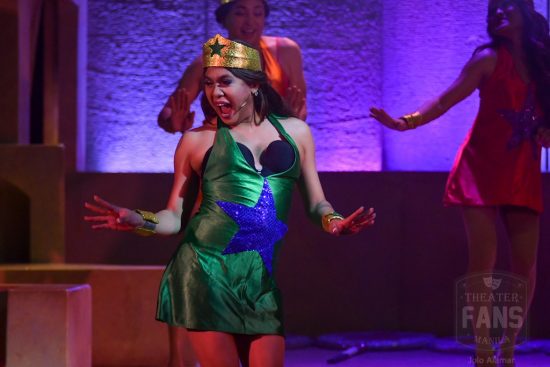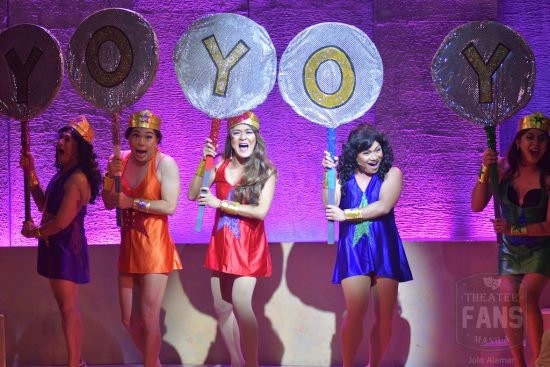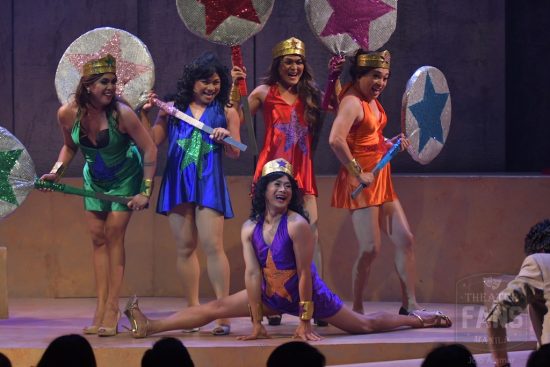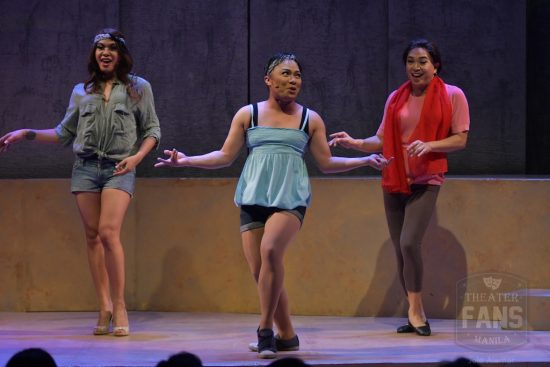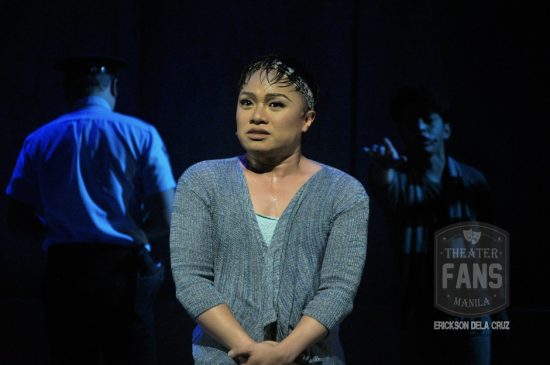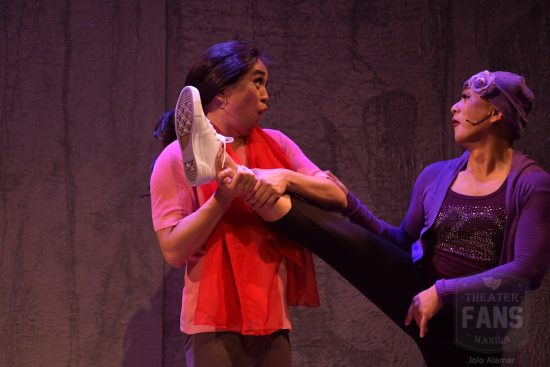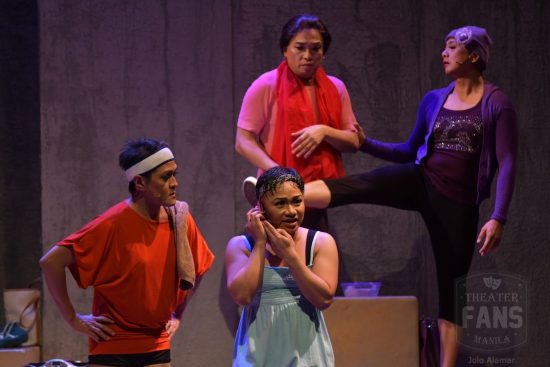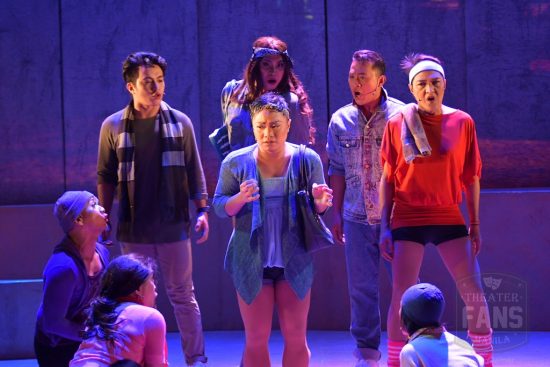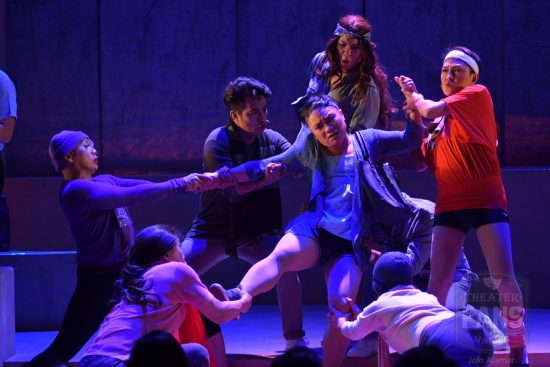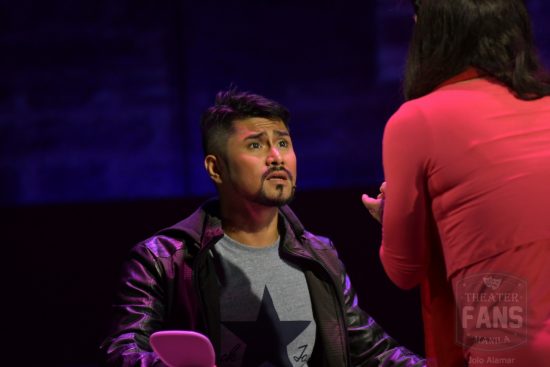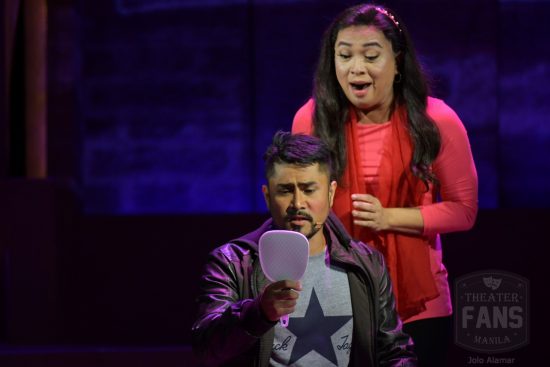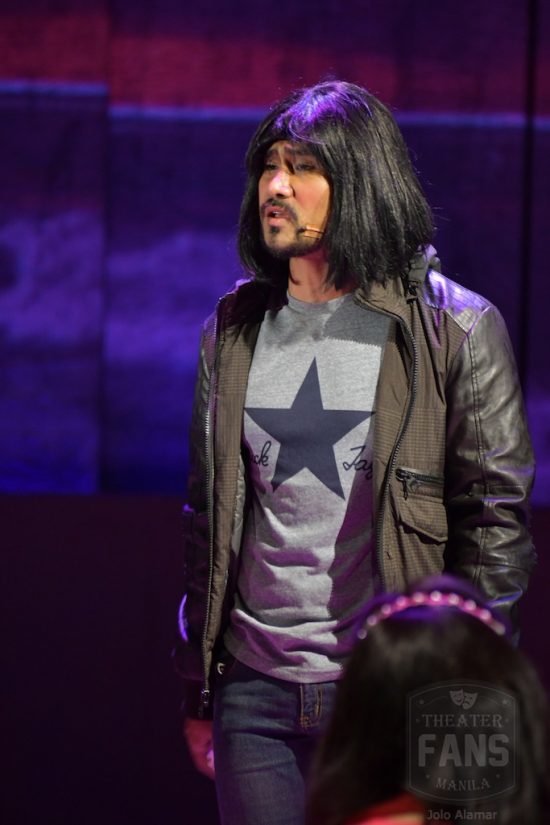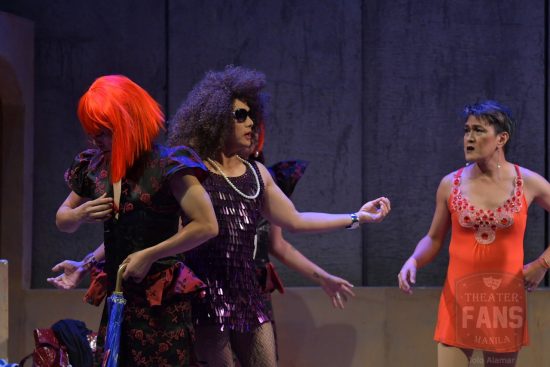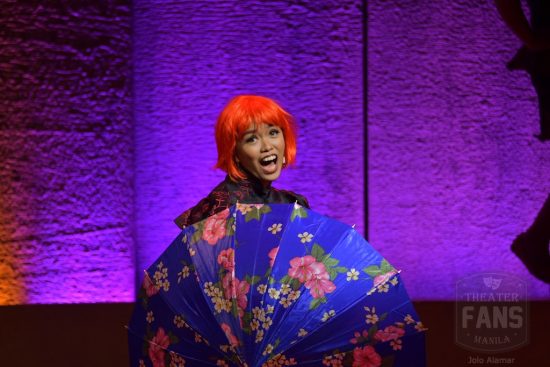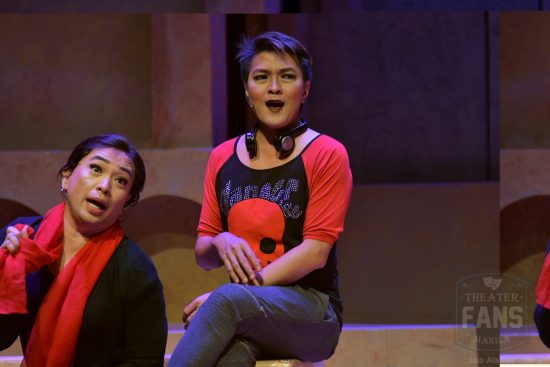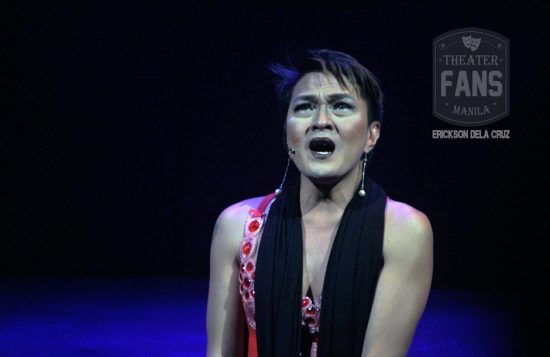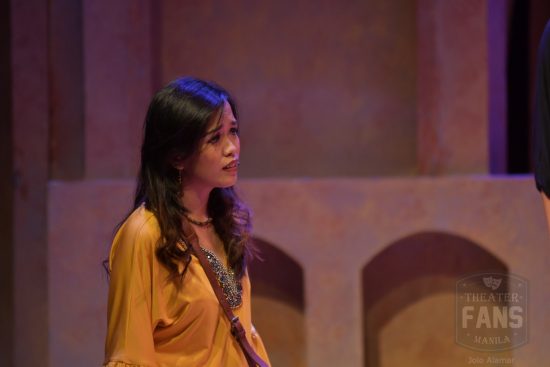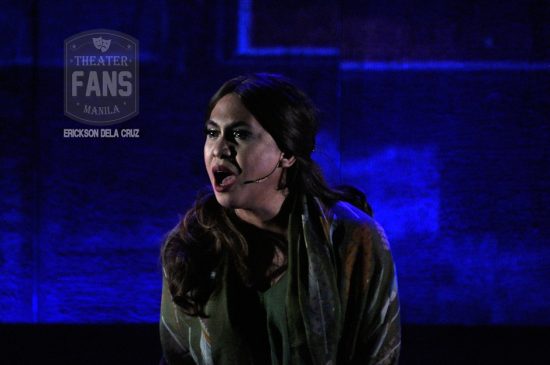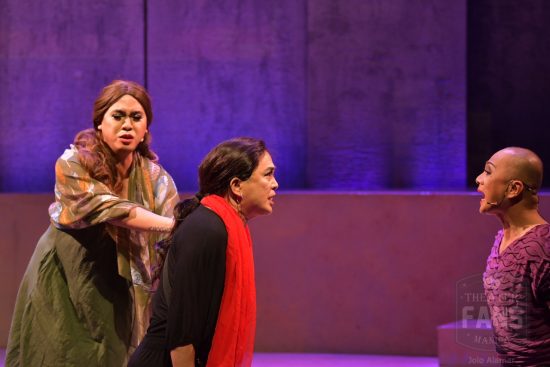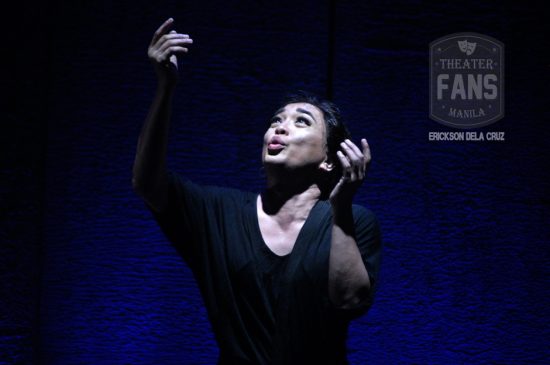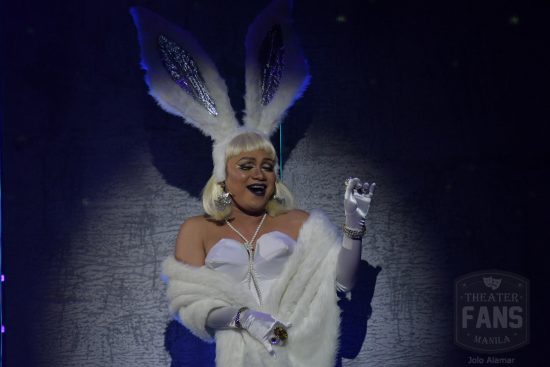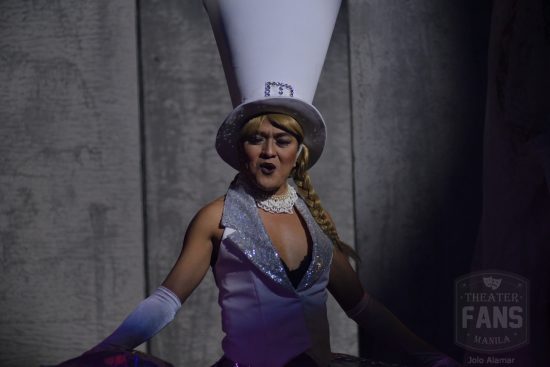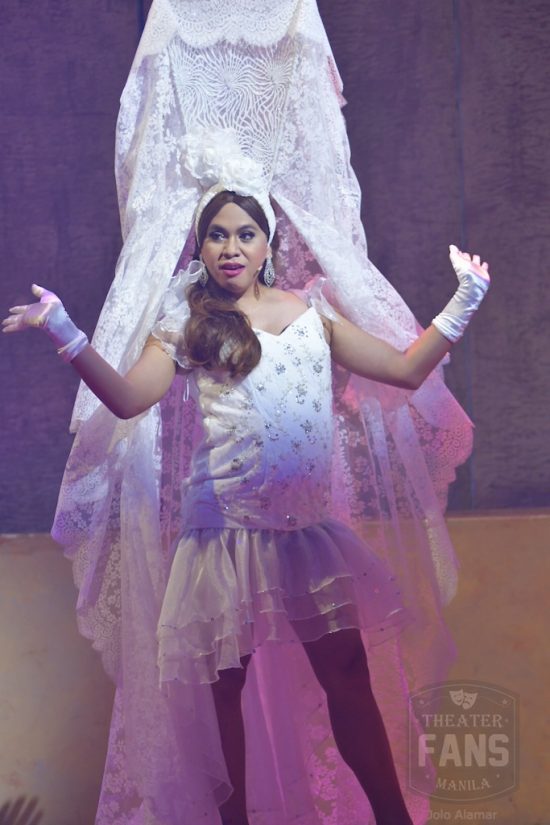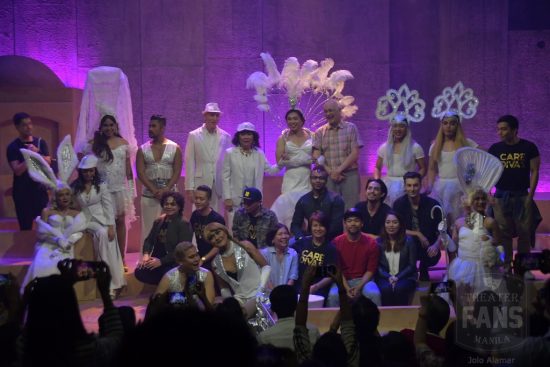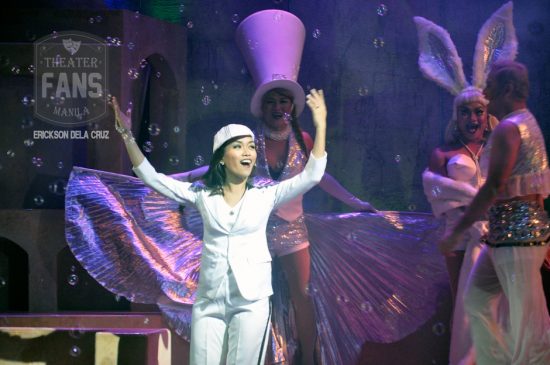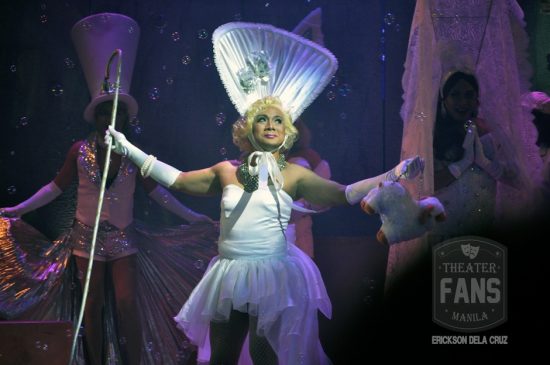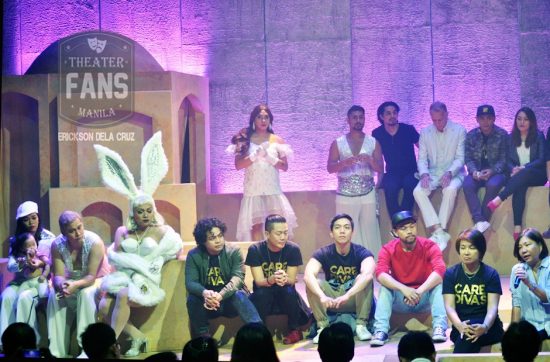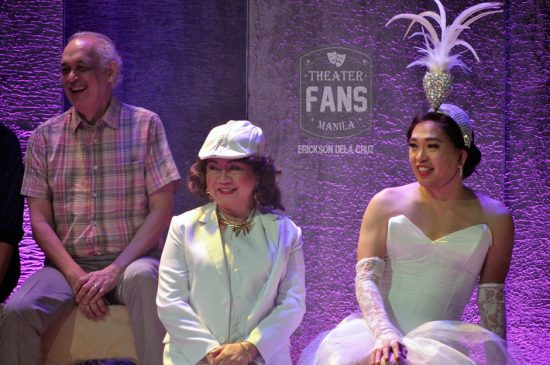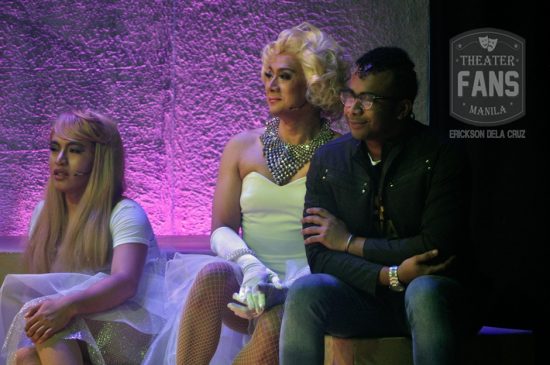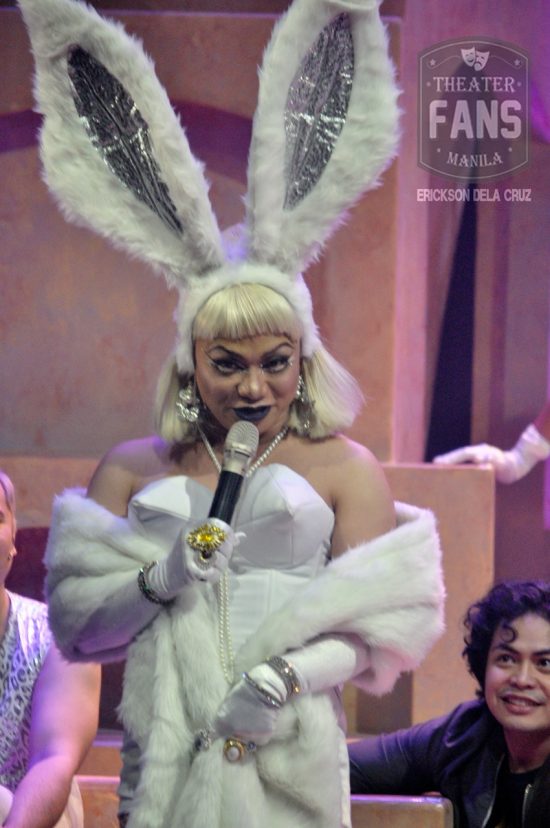
In Photos: PETA’s Care Divas
PETA’s Care Divas couldn’t have come back to the stage at a more relevant time.
Hilarious and heartwarming, Care Divas is a gut-wrenching and bittersweet story about five gay overseas Filipino workers based in Israel who work as caregivers in the morning and transform into glamorous drag queens at night.
Director’s Notes: Maribel Legarda
PETA Kicks off its 50th year celebration with the bittersweet laughter, high energy songs and bright colors of CareDivas. This production was originally produced in 2011 for our 43rd theater season.
Coming from a long history of making plays on gender I thought that maybe it was time to try a little “experiment”, two women took the helm of writing and directing. Liza Magtoto as the playwright and myself as director. Lest you think it is out of sheer vanity let me say I was curious to breakdown gender boundaries in artistic creation. Through all of PETA’s gender based plays, gay playwrights have written gay plays, women playwrights women plays and same for directing. I wanted to tweak our creative process and hopefully learn something new.
Liza has written a very filmic play so as to move from scene to another as if there were dissolves and cuts a continuous flow. This became a major motif in the direction and design style. The stage is like a neutral canvas that changes with very minimal sets and props and the actors play an important role in defining space and scene. I have also chosen to work with a small cast of ten highly talented actors who fill the canvass with intense, dynamic, and joyful performances. Vincent De Jesus’ original songs weaves through the narrative as the other “text” that embodies the romantic and whimsy of this play.
Caredivas is not a story of epic proportions. It is a story that spans roughly a year and focuses on a small seemingly insignificant community of Filipino overseas workers that find a way to survive and thrive through friendships and an opportunity of personal expression through in their creative performances.
This production is more than just a gay play for me. It is a story of migration and how the dark, dirty, and dangerous work that will be encountered by a majority of overseas Filipino workers can, in the hands of a resilient and loving people be turned into a life
filled with camaraderie, adventure, and passion.
(READ: PETA’s Care Divas Shinier the Second Time Around)
Writer’s Notes: Liza Magtoto
Tatlo ang handicap ko sa dulang ito. Hindi ako overseas worker, wala akong masyadong alam sa Israel, at hindi ako bading.
Marami akong kaibigang bading, at may kaalaman ako sa gawain ng caregiver at pagiging migrant worker. May mga eksenang halaw sa karanasan ko noong nagkasakit ang ama ko. Pati ang sense of humor niya, bago siya pumanaw. Pero hindi ko magawang mag-imbento ng basta-basta tungkol sa buhay sa Israel.
Kung kaya’t naghanap ako ng maiinterbyu. Nagkataon namang noong 2009, isinalin ko ang isang dulang Israeli para sa Tanghalang Pilipino, at may nakilala akong Pinay na may kontak na mga migrante sa Israel. Nakakwentuhan si Rose na naging caregiver sa Israel at kung paano siya nag-aadjust sa kanyang Jewish employer. Sa tulong din ng isang dating PETA actor (salamat sa Facebook at Yahoo Messenger pa noon!), may mga nainterbyu rin ako via email and chat.
Kung tutuusin, puwedeng i-set sa ibang bansa ang kwento ng caregivers na crossdressers. Pero bakit Israel? Mas kumiliti sa amin ni Maribel (ang direktor) ang dissonance ng pagiging bading na Pinoy sa isang bansang may Orthodox Jews.
Hindi sapat ang interviews. Nag-research pa ako, mula sa wikang Hebrew, kahulugan ng Jewish names, gawi ng Jews, pagtingin nila sa mga bading, batas ng Israel sa mga migrante, at pati ang alitan sa pagitan ng Israel at Palestine (o ang Intifada, na naging daan kung kaya’t nakapasok ang maraming OFWs sa Israel). Paano rin kay nakaapekto ang Intifada sa buhay ng OFWs doon?
Nanood ako ng videos para ma-visualize ko ang buhay doon. Pag sinabi kasi ng isang interviewee na gusto siyang gawing totoong lalaki ng kanyang amo, kailangan kong maisakonkreto ito sa isang sitwasyon na nakabase sa kultura nila. Buti na lang the internet is my friend. Dito ko nahanap ang iba’t ibang documentaries at mga pelikula na nagbigay sa akin ng mga ideya. Sa madaling sabi, ilang beses na-move ang deadline ko, kasi hindi ito ang tipo ng dulang sinusulat out of thin air.
Sa prosesong ito, natuklasan ko na marami palang layers ang dula: gender, migration, homelessness, intolerance. Naalala ko ang katagang the wandering Jew na mas naangkop na yata sa mga Pinoy ngayon (o baka at-home na rin ang Pinoy sa pagiging wanderer).
Hindi lang ito usapin ng pagiging bading o Pinoy. Kung ang dula ang katawan, at ang galaw nito ay tungkol sa buhay migrante, ang kaluluwa ng dulay ay kawalan o pagkakaroon ng tolerance, at ang pagkakaroon o ang kawalan ng tahanan. Lahat ng ito’y sinikap kong ipasok sa mas nakatutuwang mga linya’t eksena, na siguradong mas mapapalutong pa ng mga artista sa dula. O diva? Maibigan sana ito ng mga manonood!
You can buy tickets here.
Photo Coverage
At the press preview last January 30, Melvin Lee played Chelsea, Vincent de Jesus played Shai, Ricci Chan played Kayla, Buddy Caramat played Jonee, Dudz Teraña played Thalia, Gold Villar-Lim played Nonah, Paul Holme played Isaac/Moishe/Yaakov/Club Owner, Sherry Lara played Sarah/Adara, Myke Salomon played Faraj/David/Daniel, and Eric dela Cruz played Avi/Aryeh/Pulis. Red Concepcion, Ron Alfonso, Gio Gahol, Thou Reyes, Jason Barcial, Joan Bugcat, Leo Rialp, Jef Flores, and Jakub Krejger play the alternate characters respectively.
Photo Coverage by Jolo Alamar and Erickson dela Cruz
- Leloi Arcete
- Director Maribel Legarda gives her opening remarks
- L-R: Ricci Chan (Kayla), Dudz Teraña (Thalia), Vincent de Jesus (Shai)
- Ricci Chan as Kayla
- Melvin Lee (Chelsea) and Paul Holme (Isaac/ Moishe/ Yaakov/ Club Owner)
- Melvin Lee as Chelsea
- L-R: Melvin Lee (Chelsea), Ricci Chan (Kayla), Paul Holme (Isaac/ Moishe/ Yaakov/ Club Owner)
- Vincent de Jesus as Shai
- Vincent de Jesus (Shai) and Myke Salomon (Faraj/ David/ Daniel)
- Melvin Lee (Chelsea) and Myke Salomon (Faraj)
- L-R: Ricci Chan (Kayla), Sherry Lara (Sarah/ Adara), Eric dela Cruz (Avi/ Aryeh/ Pulis)
- Melvin Lee and Paul Holmes
- Gold Villar-Lim as Nonah
- L-R: Melvin Lee (Chelsea), Dudz Teraña (Thalia), Vincent de Jesus (Shai), Ricci Chan (Kayla), Buddy Caramat (Jonee)
- Myke Salomon as Faraj
- the cast and creative team
- finale
- Jef Flores alternates with Myke Salomon
- Thou Reyes alternates with Buddy Caramat
You can buy tickets here.


